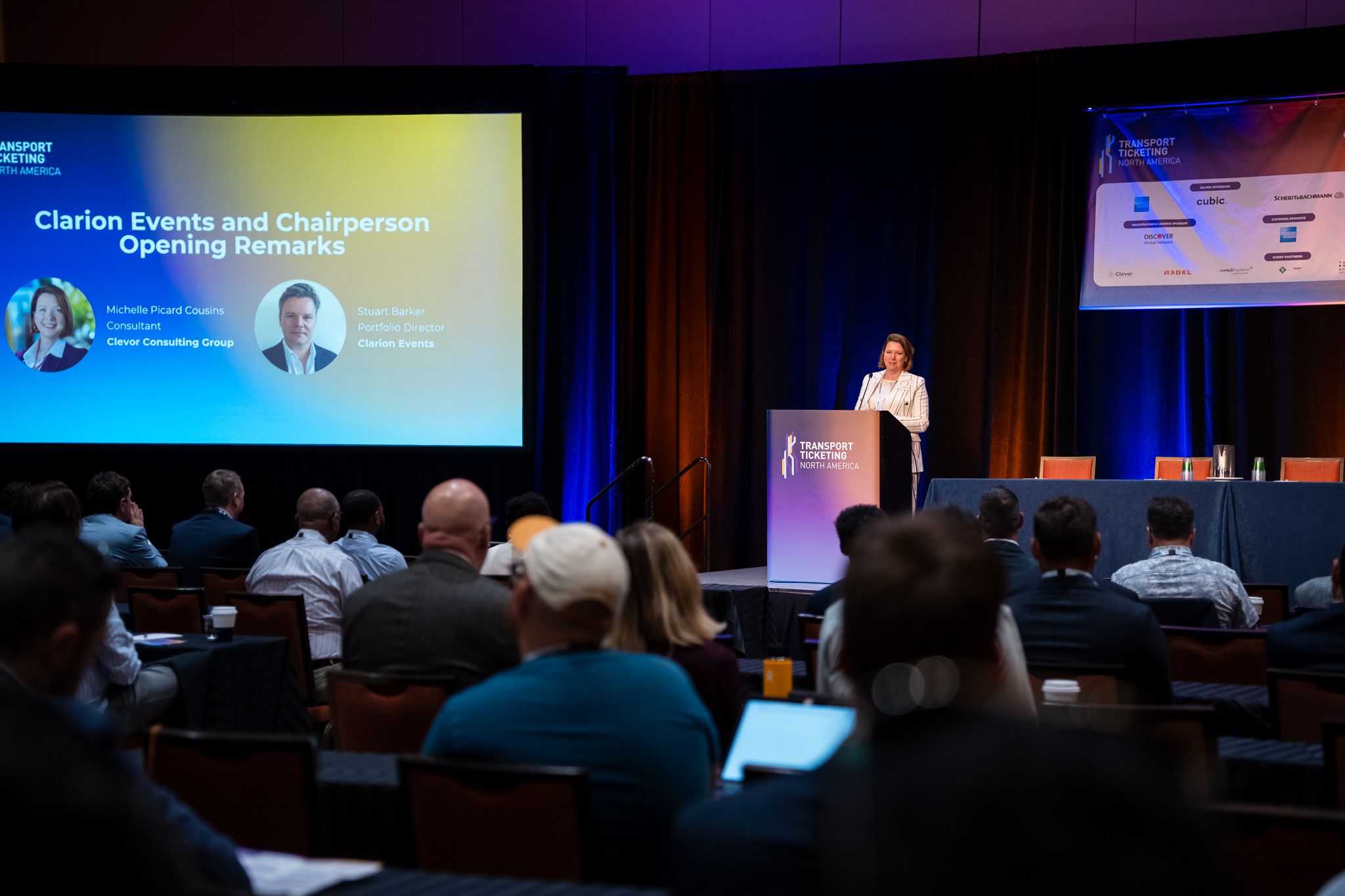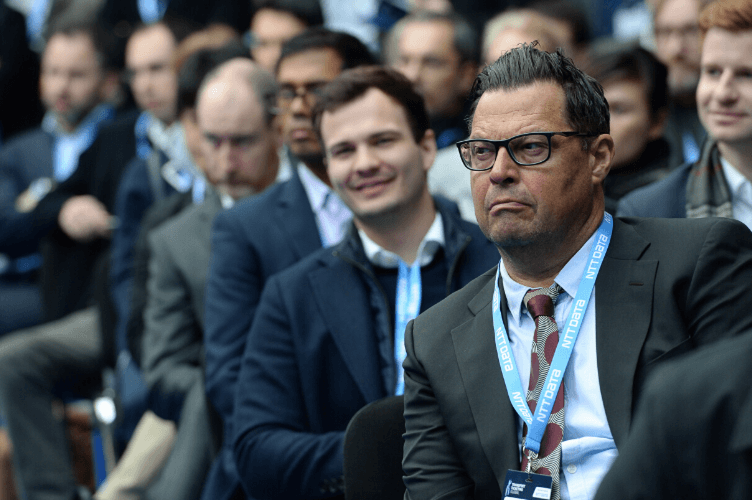Click on the buttons below to access the presentation slides from this year's conference. Please note that we can only provide access to the presentations that we've been given permission to share.



As Chicago faces increasing urbanization, climate change, and evolving mobility needs, future-proofing its public transit system has become critical to ensuring long-term sustainability, accessibility, and resilience. Identifying strategic approaches for adapting Chicago's transit infrastructure to meet 21st-century challenges, following the pandemic; was key in aligning with environmental goals, leveraging technological advances, and centering equity. This is a trend for cities around the world in transforming their public transportation systems into models for resilience and inclusivity in urban mobility. Join this fireside chat with Representative Eva-Dina Delgado of the Illinois House of Representatives, representing the 3rd District; and Alex Litchfield, Vice President with Cubic Transportation Systems as they discuss policy innovation, equitable transit, and how data-driven decision-making helped Chicago and other cities build more robust and adaptive transit networks for their riders.
Join David Kershaw who heads up the Payments Operations and Assurance team at Transport for London (TfL) about the remarkable journey transforming how millions pay for their daily travel. Explore the evolution from the Oyster card to contactless open loop payments and understand how these innovations now facilitate over 30 million journeys every day on TfL services. Gain insight into how TfL’s pioneering work has not only streamlined its own operations but has also fundamentally changed how consumers across the payment’s ecosystem utilise contactless payment technologies. Hear about the challenges they face and how Transport for London sees the future of public transit ticketing in one of the most historic, vibrant, and diverse cities in the world.
The Toronto Transit Commission (TTC) has been embarking on this transformative journey to modernize the fare collection system, with enhancements to customer experience and operational efficiency. We will take a closer look into the strategic initiatives and technological advancements, by exploring why this was important to us and our riders, our legacy model and the partnership with PRESTO, business and operational impacts, finally our challenges and lessons learned. Join us to discover future endeavors that will continue to propel the TTC’s journey to become more efficient, equitable and customer friendly.
Launching open-loop payment in a high revenue environment, such as intercity passenger rail in the United States, which has traditionally relied upon Amtrak’s national ticketing, was tailor-made for a pilot program, where many lessons could be learned. The Capitol Corridor Joint Power Authority (CCJPA) took this on, affecting every department. Now, CCJPA is at a point where open-loop payments are poised to expand, but as always, with additional lessons learned and shared in this session.
After successfully pioneering one of the first Open-Loop, Open-Standards fare collection systems in the U.S., Monterey Salinas Transit has made the commitment to complete the transition by the end of 2026. To get there will mean transitioning all the remaining methods of purchasing a ride on MST. In this session, Michael Kohlman, CIO of MST, will give a quick overview of where the agency is at, and the steps it is taking to complete this journey.
In just over one year, The Chicago Transit Authority, with Scheidt and Bachmann, successfully completed the installation of 2000 FB/30 fareboxes on the entire bus fleet, including vaulting equipment at seven bus garages, and an integrated back-office data system. Challenges included scheduling around an active fleet, operator training, identifying and tracking defects, managing software upgrades, scrutinizing reporting procedures, reconciling revenue and ridership data, and transitioning maintenance responsibilities. Lessons learned will be presented from a contract management perspective.
Learn more about the latest schemes in fare evasion, counterfeit passes and digital fraud, trends in transit fraud
As transit rapidly digitizes, the key to smarter, more connected mobility lies in uniting open-loop and closed-loop systems. From Hong Kong to Paris, and now the Netherlands, wallet-based digital ticketing and EMV White Label solutions are already transforming how millions move—seamlessly, securely, and with a tap.
User experience is at the heart of this shift, making travel faster, simpler, and more intuitive.
At the forefront of this transformation, Thales Digital Identity & Security combines deep expertise in transit, payments, and mobile technology to deliver scalable, future-proof ticketing solutions tailored to both agencies and passengers.
Join us to explore how this new model is reshaping mobility—and why now is the time to get on board.
NEORide, a council of governments representing over 37 members in ten states, has reinvented coordinated purchasing. Their EZfare mobile ticketing system has created a pathway for transit agencies of all sizes to purchase a mobile ticketing system that alone would be cost prohibitive. EZfare will have 20 agencies live on the app by the end of 2025 and allows for agencies to customize their needs by offering visual validation, validators, ABT and EMV. Learn how NEORide has been able to coordinate this and other projects to benefit transit agencies.
Jeff Kessler, Director of Innovation for Keolis Commuter Services, will provide an overview of the ways Keolis is leveraging open architecture, APIs, and related integrations to provide a seamless customer experience in ticketing across multiple platforms. From automated ticket gates that accept more than a dozen forms of barcode-based media, to onboard contactless credit card and digital wallet sales deployed without new hardware, Keolis has successfully processed millions of validations as the MBTA’s operating partner for Greater Boston’s Commuter Rail network while remaining nimble, flexible, and adaptable. Likewise, a look to future developments in open data standards like GTFS and TODS will give a glimpse into the evolving future of simple solutions for advanced ticketing integrations.
This panel will explore the challenges transit agencies face with fare collection costs, why these projects often exceed budgets and strategies to mitigate financial risks. Experts will discuss procurement challenges; key cost drivers and lessons learned from other industries
This presentation will explore GTFS Fares’ comprehensive feature set, from fare modelling to payment methods, transfer rules and fare capping, demonstrating its ease of implementation and potential to create a scalable, user-centric, and economically sustainable future for public transit.
Hear from transit agencies that have successfully launched new approaches about implementation challenges, the importance of partnerships, and opportunities for program expansion
Learn about automated eligibility verification methods that support scalable programs
Explore trade-offs between fraud risks, program accessibility for eligible riders, and administrative simplicity

Join us to network, learn and connect with senior fare collection and transit professionals next year!
Pre-RegisterShare your story and take to the Transport Ticketing North America stage alongside the most influential smart ticketing leaders and experts.
Think you've got what it takes?